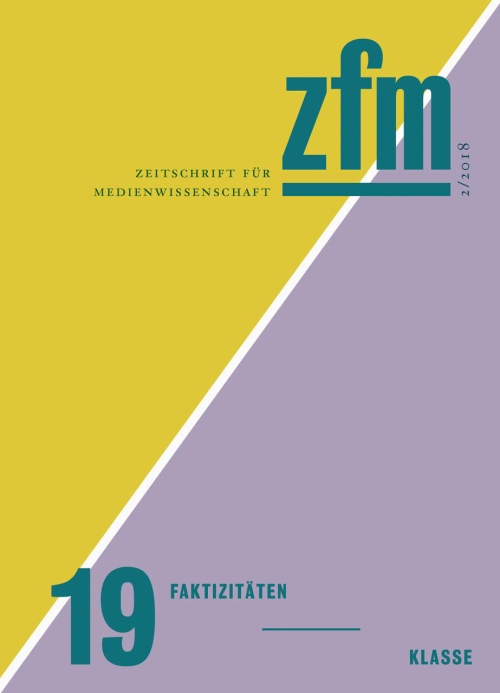Die Wahrheit des Relativen in der Krise der Fake News
Denken mit Alexandra Juhasz’ «#100hardtruths-#fakenews: A primer on digital media literacy»
Abstract (Deutsch)
Ecologies of practices sind, so Isabell Stengers, ein nicht-neutrales Werkzeug des Denkens. Als solches hilft es uns, Gewohnheiten des Denkens zu ändern und den Praktiken so ein neues Habitat bereitzustellen. Wie wäre ein Denken mit dem Internet in und nach der Krise der «Fake News» in diesem Sinn möglich? Ausgehend von Stengers methodologischer Bestimmung des Denkens als eine Praxis, die eine Relation zwischen Gehören-zu (Belonging) und Werden (Becoming) stiftet, zeigt der Beitrag, wie eine so verstandene Ökologie der Praktiken einen Ausweg aus dem Diskurs der ‹Fake News› weist. Was dies konkret für die Frage heißt, wie unter Bezugnahme auf diesen methodologischen Ansatz mit dem Internet gedacht werden könnte, wird im zweiten Teil am Beispiel des digitalen Projektes #100hardtruths-#fakenews: A primer on digital media literacy von Alexandra Juhasz vorgestellt.
Abstract (English)
The Truth of the Relative in the Crisis of Fake News. Thinking with Alexandra Juhasz’ «#100hardtruths-#fakenews: A primer on digital media literacy»
Ecologies of practices are, according to Isabell Stengers, a non-neutral tool of thought. As such, it helps us to change habits of thought and thus provide a new habitat for practices. How would thinking with the Internet in this sense be possible in and after the crisis of ‹Fake News›? Based on Stenger's methodological determination of thinking as a practice that establishes a relation between belonging and becoming, the article shows how an ecology of practices in this regard points a way out of the discourse of ‹fake news›. In the second part, Alexandra Juhasz's digital project #100hardtruths-#fakenews: A primer on digital media literacy presents what this means in concrete terms for the question of how one could think with the Internet with reference to this methodological approach.
Bevorzugte Zitationsweise:
Die Open-Access-Veröffentlichung erfolgt unter der Creative Commons-Lizenz CC BY-NC-ND 4.0 DE.
